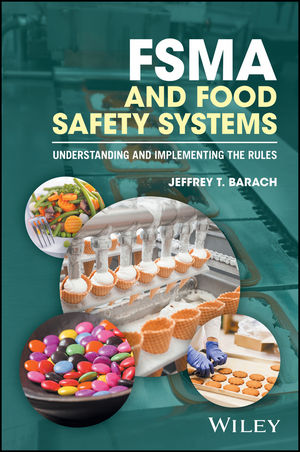The Four Commandments of Food Litigation

Multiple headwinds from different directions have converged to create the recent storm of food safety and food-related litigation. While some of these are beyond the food industry’s control, others the industry can manage. Prevailing forces include the rise of consumer fraud class actions, the less positive image of Big Food, the growth of social media and the ever-increasing competition among companies.
As a defense attorney who has represented food manufacturers in class actions and products liability cases for more than 35 years, I have developed four simple “commandments” that food manufacturers should try to follow. Observance of these commandments can help to stem the tide of litigation, and reduce the significant time and expense that companies devote to handling these matters.
By way of illustration, consider a hypothetical—The Healthy Biscuit Company—a popular snack food company that has built a strong brand. Out of the blue, the company faces a class action lawsuit claiming that its biscuits are carcinogenic because the grains are sprayed with an allegedly dangerous pesticide. It will eventually turn out that there is absolutely no basis for the claim. But can the company and its brand weather the storm? Companies such as Healthy Biscuit should consider these four commandments to keep their head above water:
1. Thou shall be prepared for crises.
The saying “an ounce of prevention is worth a pound of cure” holds true. Companies should not wait until the reports of food contamination or complaints from customers to roll in before preparing for such crises. Every company must have a crisis management plan and update it on a periodic basis. Identify potential crises before they happen and plan out a strategy before the company is under the gun.
All food companies need a written plan that identifies the members of their crisis management team and the roles each person will play, including legal, public relations, security and marketing. The team must be prepared to communicate quickly and accurately with all constituents, including customers, stockholders, employees, the media and the government.
The company will need a designated spokesperson who is trained to deal with the media and who can communicate a simple, clear and consistent message. The spokesperson must know how to avoid the common mistakes in crisis management, including speculating, acting defensively, minimizing the situation and refusing to answer questions. Saying “no comment” is not an option, as it makes the company look guilty or that it’s hiding information.
As the lawsuit is covered in the media, it may also get the attention of government agencies. Companies like Healthy Biscuit need to have its team in place very quickly, especially when facing government scrutiny. Also, food companies must be ready not only respond to the lawsuit and government inquiries, but also to deal with reporters, customers, and even concerned investors. Every company needs a general who is overseeing the response, but also a trained spokesperson who is delivering the company’s message.
2. Thou shall remember social media.
Social media can play a major role in building a brand. It can also rapidly destroy the brand. Overnight, Healthy Biscuit can go from being a smart snack, to a killer. Every food company must be prepared to engage its customers, and address their fears.
Social media can be a dangerous threat to a company because anyone in the world with access to Twitter or Facebook can become an adversary or spout false information, which the company cannot readily block. Those with kindred opinions can quickly join together in a web of attacks on the brand and a company, and once it goes viral, their positions may be picked up rapidly by conventional media outlets, especially if the story has a health and safety angle.
Again food companies cannot wait until the social media storm reaches the shore to have a plan. The company must be able to act quickly. Companies will not have the luxury of waiting a week to respond, but rather a day or just a few hours. Food companies need to have an existing presence on all the major social media platforms (i.e., Twitter, Facebook, YouTube, Linkedin, etc.) and ideally with a base of followers on each one. These channels allow food companies to quickly respond to attacks in a forum that customers are already engaged with. Issuing a press release will not suffice.
3. Thou shall not write poorly.
Every lawyer’s dream is to find the “smoking gun”—the document(s) to show to a jury as Exhibit A, proving conclusively that the defendant is guilty as charged. Unfortunately, corporate employees may have unwittingly created Exhibit A in an ill-advised email sent to a colleague. Companies need to do a better job of educating employees to avoid ill-advised emails that plaintiffs’ attorneys will later use against the company.
There are a few simple rules to hammer home to employees. When writing any email, assume the email may end up in a front-page story of the New York Times. Avoid speculating about potential wrongdoing or liability. Employees should not guess in an email that a product is contaminated or defective. With respect to potential liability, the worst phrase an employee can include in an email is “I am no lawyer but….”
Hopefully Healthy Biscuit’s employees are not busy sending emails speculating whether the product is carcinogenic. And, the internal and external communications are accurate and clear.
4. Thou shall work together.
The food industry is highly competitive. Companies with similar product lines are fighting for market share, and may even sue each other claiming that a competitor falsely advertised its products. That said, the industry must do a better job in responding to well-funded interest groups and plaintiffs’ lawyers who are engaged in campaigns targeted at food companies. Other industries (such as the automotive) have worked together well in seeking strong legislation and in identifying appropriate test cases to advance their interests. The food industry has not historically banded together. A strong, cooperative effort to stem the tide of unwarranted attacks on the industry is essential for the industry.
Healthy Biscuit’s competitors might initially smile when they hear about the lawsuit. But they could be next target. These types of lawsuits can become viral and lead to attacks on all brands, unless companies address them quickly. As such, cooperation among food companies can be critical. While the companies need to keep all the antimonopoly laws in mind, they do need to take advantage of common defense rules. Nations of the world have built common defenses—food companies should do likewise when appropriate.
Drawing a Line in the Sand
To stem the tide of litigation, the food industry could do a much better job at internal and external communications. Observance of these four commandments can help food companies band together to reduce frivolous lawsuits and reduce the significant time and expense that all food companies devote to managing litigation.
Ronald J. Levine, Esq., is cochair of the litigation department and a partner at the law firm of Herrick, Feinstein LLP, with offices in New York and New Jersey.
Looking for a reprint of this article?
From high-res PDFs to custom plaques, order your copy today!









